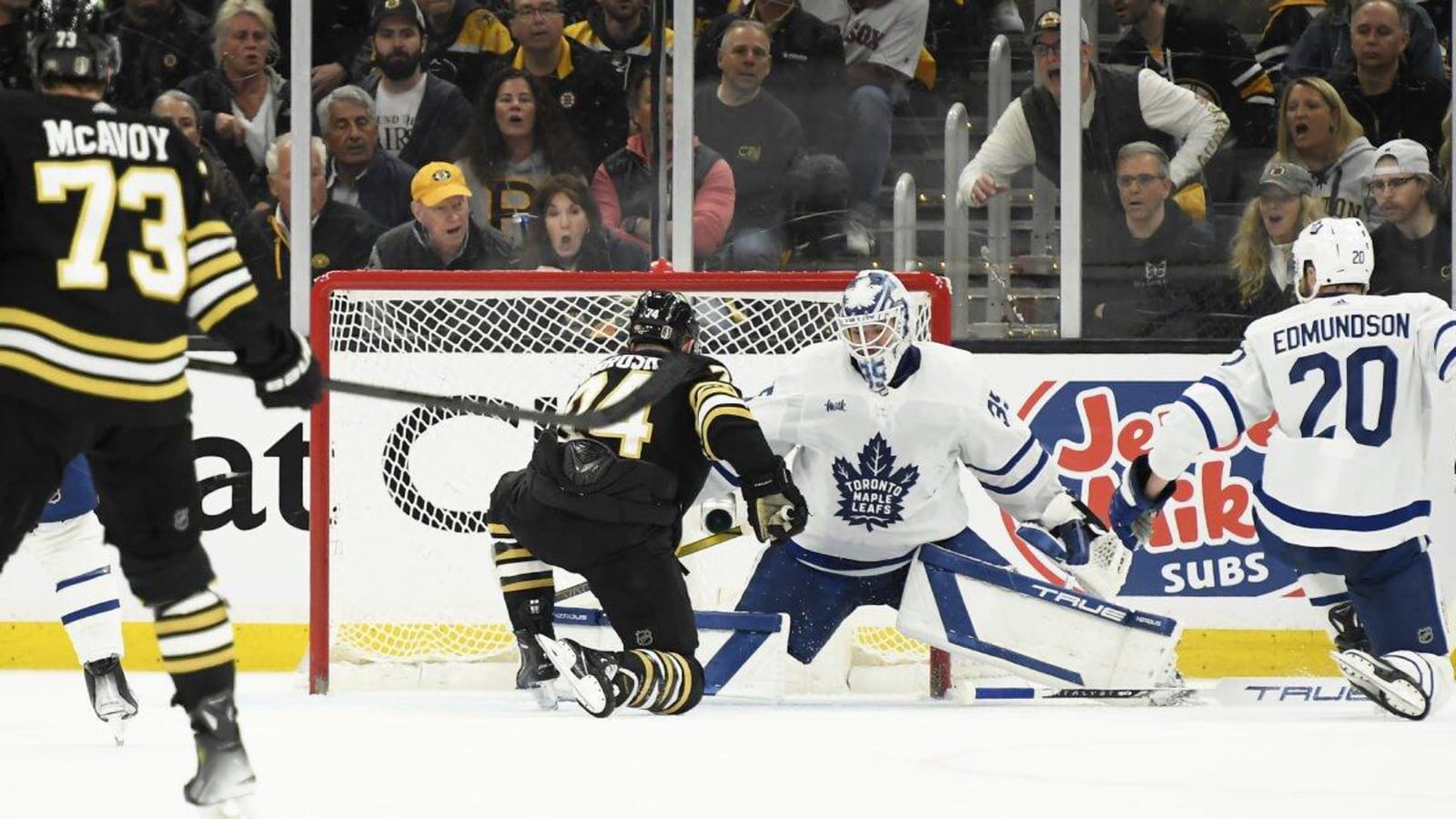
How much do special teams matter in the playoffs?
Not as much as they used to. I argued as much just a few weeks back when crunching the numbers of the past 10 Stanley Cup champions. The Vegas Golden Knights, for instance, couldn’t do anything right on special teams. During the 2022-23 regular season, they were 18th on the power play and 19th on the penalty kill. In the playoffs, they killed penalties at a hideous 71.7 percent success rate. And, naturally, they won it all.
But, crucially, Vegas worked around its deficiencies. While they did get burned when they took penalties, they took the fewest penalties per 60 minutes of any team in the NHL in the 2022-23 regular season. In the postseason, they took the ninth most penalties per 60 in the field of 16 and drew the third most. They drew 18 more penalties than they took during the 2023 playoffs. While they were never going to be a lethal power-play team, they were passable at 21.9 percent, enough to make an impact when they were drawing so many more penalties than their opponents. Mix in their 5-on-5 dominance, doubling up their opponents 66-33 on the scoreboard, and they found a winning formula last spring.
The 2023-24 Toronto Maple Leafs could learn a lot from those Golden Knights, who, by the way, opened the playoffs last year with a 5-1 defeat. The Leafs were one of the better 5-on-5 teams in the NHL this season, leading the league with 200 goals and finishing second in high-danger scoring chances. Their special teams were a much bigger question mark heading into the postseason. They operated the NHL’s No. 7 power play but actually had the one of NHL’s weakest power plays over the last month of the regular season, trudging into the playoffs having gone 5 for 41 (12.2 percent) over their final 13 games. And the putrid penalty kill needs little introduction at this point. Operating at 76.9 percent, it was the Leafs’ worst mark in 14 years and the second worst among the 16 teams to qualify for the 2023-24 postseason.
And whereas the Golden Knights played a disciplined game last spring, allowing them to mask their faults, the Leafs were not set up to do the same heading into the playoffs. A tougher, more belligerent team as constructed by GM Brad Treliving this season, they were ninth in penalty minutes, ranked in the top half the league in penalties taken and were mid-pack at drawing penalties.
The Leafs thus entered their series with the Boston Bruins showing a few clear weaknesses on paper. If you can take the 5-on-5 play away from them and draw them into a street fight that lands them in the sin bin, you’ve got ’em licked. The Leafs, trying a little too hard to showcase their newfound toughness, were sparring with the Bruins before the puck even dropped for Game 1. Toronto took five penalties, which, according to coach Sheldon Keefe, ranged from “undisciplined” (Max Domi’s slash on Brad Marchand) to “careless” (Auston Matthews’ high stick on Charlie McAvoy). Jake DeBrusk torched Toronto with two power play goals 2:32 apart and put Game 1 out of reach at 4-0 before the second period was finished.
The Leafs boasted the NHL’s No. 2 offense, a 69-goal scorer in Matthews, three players with 85 or more points, five 50-point scorers and eight guys with at least 14 goals in the regular season. They had the talent edge over Boston heading into this series. But the Bruins, who have arguably the game’s best penalty-drawing forward in Marchand, twisted the play into something that suited their strengths much more in Game 1.
An undisciplined Toronto team simply doesn’t have the penalty killing prowess to cover its behind, not if it’s going to hand Boston five power plays a game and especially if Bobby McMann, one of their better penalty killing forwards, remains out with an lower-body injury. And if the Leafs don’t get William Nylander back and continue to make odd decisions like playing Calle Jarnkrok over Tyler Bertuzzi on their top power-play unit, they may struggle to capitalize on their own opportunities.
It’s a new Leafs team, but they showed an old tendency in Game 1, one reminiscent of 2013, 2018 and 2019’s first-round defeats: letting Boston dictate where and how the game was played. How will the Leafs respond in Game 2?
More must-reads:
- Maple Leafs force Game 7 with 2-1 win over Bruins
- Bruins HC calls out All-Star for lack of playoff production
- The 'AP First-Team All-Pro tight ends' quiz
Breaking News
Customize Your Newsletter
 +
+
Get the latest news and rumors, customized to your favorite sports and teams. Emailed daily. Always free!

